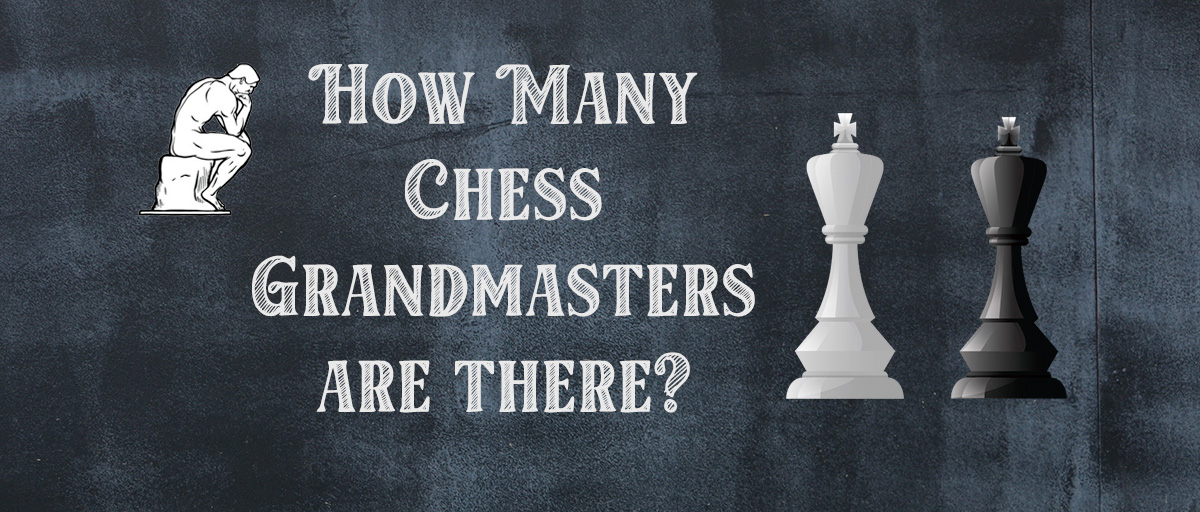Chess is a game deeply rooted in history and strategy, challenging the minds of players around the world for centuries. At the pinnacle of chess excellence, we find the esteemed title of Grandmaster. In this ultimate guide, we will explore the fascinating world of chess grandmasters, their achievements, and the path to attaining this prestigious title.
Table of Contents
Understanding the Grandmaster Title
What is a Grandmaster?
A Grandmaster is the highest title awarded by the World Chess Federation (FIDE) to exceptionally skilled chess players. It recognizes their remarkable abilities, profound understanding of the game, strategic thinking, and consistent outstanding performance in official tournaments.
Becoming a Grandmaster is a dream for many chess players. It represents the culmination of years of hard work, dedication, and a deep passion for the game.
How is the Grandmaster title earned?
To become a Grandmaster, a player must achieve three key requirements:
- Elo Rating: Attain a FIDE rating of at least 2500. The Elo rating system is a numerical representation of a player’s skill level and is used to compare players’ abilities.
- Norms: Earn three Grandmaster norms. Norms are obtained by achieving exceptional results in specific tournaments. Each norm requires meeting specific performance criteria against other strong players.
- Title Application: Submit a formal title application to FIDE for review and approval, including proof of the necessary Elo rating and norms.
These requirements ensure that only the most skilled and consistent players are awarded the Grandmaster title.
Who grants the Grandmaster title?
The Grandmaster title is awarded by FIDE, the international governing body for chess. FIDE meticulously evaluates players’ qualifications before conferring this prestigious title. The thorough evaluation ensures that the title retains its significance and represents the highest level of chess mastery.
How many chess grandmasters are there?
The Number of Chess Grandmasters Worldwide
At the time of writing, there are just over 2,000 chess grandmasters worldwide. The exact number fluctuates as new players attain the title and others may retire or lose their grandmaster status due to inactivity.
Distribution of chess grandmasters across countries

According to playmagnus.com, Russia leads the pack with 211 Grandmasters, followed by the USA with 105. Germany and Ukraine also have a significant number of Grandmasters, with 94 and 83 respectively. Chess.com supports these numbers, highlighting the growth of the number of grandmasters in top countries over the years.
Meanwhile, FIDE’s rankings confirm Russia’s dominance in terms of the average rating of top 10 players, Grandmasters, International Masters, and total titled players. They also highlight the country-wise distribution of the top 100 FIDE rated Chess Grandmasters globally (as per the list published in March 2023).
In addition to these powerhouses, smaller countries like Monaco also contribute to the chess community. Despite its population of just 39,242, Monaco is home to two grandmasters: David Marciano and Igor Efimov.
Finally, a visual presentation of world chess ratings on en.chessbase.com shows that most rated players are in Europe (72.1%), especially in the western and central part of the continent.
These findings provide a fascinating insight into the global distribution of chess grandmasters, revealing a game that truly transcends borders and cultures.
Trends in the number of chess grandmasters
Over the years, the number of chess grandmasters has steadily increased. This can be attributed to the growing popularity of the game, better access to resources and training, and the rise of online platforms that facilitate competitive play and learning.
The increase in the number of grandmasters not only showcases the expanding talent pool but also highlights the advancements in chess education and training methodologies. Aspiring grandmasters now have more opportunities and resources available to them than ever before.
The Path to Becoming a Chess Grandmaster
Starting the chess journey
Becoming a grandmaster is no easy feat; it requires years of dedication, practice, and a passion for the game. Most grandmasters start their chess journey at a young age, often introduced to the game by family or through school programs.
The early exposure to chess allows young players to develop a strong foundation and a love for the game. Starting early also provides ample time for players to hone their skills and gain valuable experience through practice and competitive play.
Chess training and education
To develop their skills, aspiring grandmasters engage in rigorous training programs that encompass various aspects of the game, including opening theory, middle-game strategies, endgame mastery, tactical puzzles, and studying games of legendary players. Many players also seek guidance from experienced coaches to refine their techniques and develop a deep understanding of chess principles.
Chess training involves a combination of theoretical knowledge and practical application. Players study classic games, analyze their own games, solve chess puzzles, and actively participate in training sessions and tournaments. This comprehensive approach helps aspiring grandmasters broaden their understanding of the game and sharpen their analytical and strategic thinking abilities.
Competitive play and tournaments
Chess players aspiring to become grandmasters actively participate in tournaments, both locally and internationally. Regularly competing against strong opponents allows them to refine their skills, gain experience, and earn crucial norms required for the Grandmaster title.
Tournaments provide a platform for players to test their abilities, learn from their mistakes, and measure their progress against other talented individuals. Each tournament offers unique challenges and opportunities, contributing to the growth and development of aspiring grandmasters.
Mental preparation and discipline
Becoming a grandmaster demands mental fortitude, patience, and discipline. Players must learn to handle intense pressure, analyze complex positions accurately, and resist the temptation to make hasty decisions. Developing a strong work ethic and maintaining a positive mindset are also important factors in achieving success.
Mental preparation involves psychological training, such as visualization techniques, concentration exercises, and managing stress and emotions during games. It is crucial for players to cultivate a resilient mindset that allows them to navigate the ups and downs of competitive chess.
The Significance of the Grandmaster Title
Recognition and prestige
The Grandmaster title holds immense prestige within the chess community. Attaining this title signifies exceptional skill, dedication, and deep understanding of the game. Grandmasters are revered as chess experts, and their accomplishments earn them recognition worldwide.
The recognition and prestige associated with the Grandmaster title extend beyond the chess community. Grandmasters often capture the attention of the media, receive invitations to prestigious events, and are respected as intellectual figures. Their achievements inspire others and contribute to the popularization and promotion of chess as a sport and art form.
Career opportunities
Being a grandmaster offers numerous career opportunities within the chess world. They can pursue professional chess as a player, coach, commentator, or even as an author of chess-related books. Grandmasters often enjoy sponsorships, invitations to prestigious tournaments, and the chance to represent their countries in international events.
The Grandmaster title opens doors to a wide range of possibilities. It allows players to turn their passion for chess into a fulfilling and financially rewarding career. Whether it is coaching young talents, analyzing games for broadcasting, or writing insightful books, grandmasters have the opportunity to make a significant impact on the chess community.
Influence on chess development
Chess grandmasters play a vital role in the growth and development of the game. They inspire future generations, contribute to chess literature, and often act as ambassadors, promoting chess in schools and communities. Their expertise and strategic insights shape the evolving landscape of chess theory and practice.
Grandmasters have the power to shape the future of chess. Through their contributions, they push the boundaries of the game, introduce innovative ideas, and challenge existing norms. Their influence extends beyond the chessboard, as they inspire players of all levels to explore the depths of the game and strive for excellence.
Conclusion
Becoming a chess grandmaster is the ultimate achievement for any serious chess player. It requires years of hard work, dedication, and a deep passion for the game. The number of chess grandmasters worldwide continues to evolve as new talents emerge and contribute to the rich tapestry of chess excellence. Whether you aspire to become a grandmaster or simply enjoy the game, the path to mastery in chess is an exciting journey that unveils the fascinating world of strategy and intellect.
FAQ
1. What is a Grandmaster?
A Grandmaster is the highest title awarded by the World Chess Federation (FIDE) to exceptionally skilled chess players. It recognizes their remarkable abilities, profound understanding of the game, strategic thinking, and consistent outstanding performance in official tournaments.
2. How is the Grandmaster title earned?
To become a Grandmaster, a player must achieve three key requirements: Elo Rating, Norms, and Title Application. The Elo rating must be at least 2500, three Grandmaster norms must be earned by achieving exceptional results in specific tournaments, and a formal title application must be submitted to FIDE for review and approval.
3. Who grants the Grandmaster title?
The Grandmaster title is awarded by FIDE, the international governing body for chess. FIDE meticulously evaluates players’ qualifications before conferring this prestigious title.
4. How many chess grandmasters are there?
As of 2023, there are just over 2000 chess grandmasters worldwide. The exact number fluctuates as new players attain the title and others may retire or lose their grandmaster status due to inactivity.
Affiliate Disclosure
Some of the links on Chesspert.com are affiliate links. This means that we may earn a small commission if you click through and make a purchase, at no additional cost to you. Please note that our product reviews and roundups are independent, and the affiliate relationships do not influence our content in any way.
Chesspert.com is a participant in the Amazon Services LLC Associates Program, an affiliate advertising program designed to provide a means for sites to earn advertising fees by advertising and linking to Amazon.com.
Chesspert.com is also a participant in the GammonVillage Inc. Affiliate Program, an affiliate advertising program designed to provide a means for sites to earn advertising fees by advertising and linking to GammonVillage.com.
Amazon and the Amazon logo are trademarks of Amazon.com, Inc. or its affiliates. GammonVillage is a trademark of GammonVillage Inc. or its affiliates.
Our passion for board games extends far beyond the chess table. We’ll be your trusted companion, on a journey through the enchanting realms of not only chess but also backgammon, dominoes, mahjong, checkers, and a diverse array of other captivating board games.
Whether you’re in search of the ideal chess set, luxury backgammon sets, a chinese checkers set, a checkers set, or if you’re seeking the excitement of a thrilling game of mahjong solitaire, we’ll guide you along the way.
In partnership with our affiliates, we bring you an extensive selection of board games and past times to explore and enjoy.
Dive into our extensive collection of guides and reviews, and unlock the joy and exhilaration that board games offer. From exquisitely crafted game pieces to the essential accessories that elevate your gaming experience, we’re here to guide you through it all with ease and delight.
Join us in celebrating the timeless allure and camaraderie that these games nurture, one post at a time!






